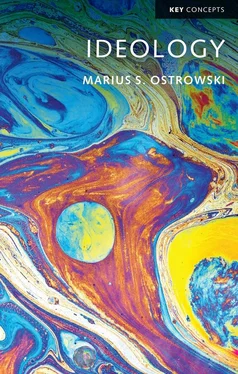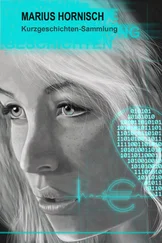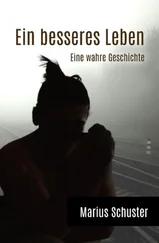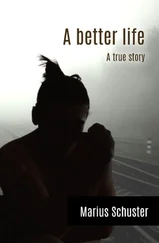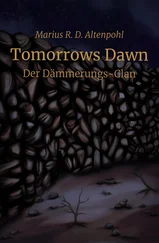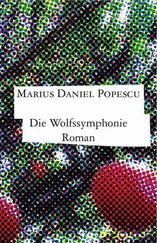Library of Congress Control Number: 2021948304
by Fakenham Prepress Solutions, Fakenham, Norfolk NR21 8NL
The publisher has used its best endeavours to ensure that the URLs for external websites referred to in this book are correct and active at the time of going to press. However, the publisher has no responsibility for the websites and can make no guarantee that a site will remain live or that the content is or will remain appropriate.
Every effort has been made to trace all copyright holders, but if any have been overlooked the publisher will be pleased to include any necessary credits in any subsequent reprint or edition.
For further information on Polity, visit our website: politybooks.com
Figures and Tables
Figures
1The history of ideology theory
2 An overview of ideologies’ historical development
3 The ideological compass
4 Ideological apparatuses’ operations over the life cycle
5 Sources of ideological influence
6 The ideology studies compass
1 The criteria of ideological characterisation
2 Social domains
3 Overview of ideologies’ social morphologies
4 Ideological apparatuses across social domains
In 1967, in his essay ‘Negative and Positive Freedom’, the philosopher Gerald MacCallum put forward a deceptively simple but at the time profoundly radical claim: that the idea of freedom referred to a single concept. To understand the radicalism of MacCallum’s proposition, we have to recall its intellectual context. Under the shadow of recent and ongoing conflicts between liberal democracy and fascist and communist totalitarianism, the philosophical study of freedom had settled on the view, developed by Erich Fromm in 1941 and popularised by Isaiah Berlin in 1958, that there was an irreducible bifurcated distinction between two supposedly incompatible concepts of freedom, each with their own lengthy intellectual traditions. One was ‘negative’ freedom, x is (is not) free from y , defined as the absence of any external interference or constraint; the other, ‘positive’ freedom, x is (is not) free to y , the capacity to enact one’s will and achieve one’s aims and potential. With his intervention, MacCallum sought to upend this established consensus. He suggested a formulation that could unite these two understandings, which he termed the ‘triadic relation’: x is (is not) free from y to do (not do, become, not become) z . The term ‘freedom’, he concluded, was in fact a single concept; and its ‘negative’ and ‘positive’ interpretations were not mutually unintelligible concepts or traditions but merely two conceptions , two ways of looking at the same concept from different angles. MacCallum’s essay has become a staple presence on Anglo-American political philosophy syllabi. Every year, legions of students are invited to consider whether the various defenders and detractors of ‘negative’ and ‘positive’ freedom – and of its recently recovered sibling ‘republican’ freedom – are representatives of colossal worldviews talking blindly past one another or indulging the narcissism of the tiniest differences by exaggerating tweaks of perspective into grandiose existential feuds.
It is a similar situation with the concept of ‘ideology’. One of the first choices you have to make when writing about ‘ideology’ – under pressure from representatives of different methodological perspectives, from Marxism to poststructuralism, from comparative politics to social psychology – is whether to run with the idea that there are many incommensurable meanings of the term or insist on staking out a patch of analytical common ground with a concept of ‘ideology’ on which the various different ‘sides’ can put their unique ‘spin’. There are persuasive defences by eminent names within ideology theory arrayed on either side: to name only a few, Raymond Boudon, Terry Eagleton, and John Thompson for the former approach, David Manning and Martin Seliger for the latter. In very broad terms, the first camp takes the view that ‘ideology’ is used to refer (correctly or incorrectly, sincerely as well as insincerely) to a host of social phenomena that have only a loose connection with one another – or even contradict one another outright – and that only some should be included in the formal study of ideology, others excluded from it, but all kept rigorously analytically distinct. The second camp, meanwhile, insists that such diversity of phenomena illustrates above all the social pervasiveness and complexity of ideology but does not eliminate the possibility – or obviate the need – to find a way of bringing all of them theoretically ‘under the same roof’, precisely to reflect the fact that ideology is ‘implicated’ in all of them, no matter how differently or (seemingly) incompatibly. In this book, I side with the second camp. The upshot is an account of ideology that acknowledges the cumulative wisdom of different ways of analysing it but carves a path towards a definition that is of interest, and of use, to all the areas of social life and social research in which ‘ideology’ appears. Neither the fall of Babel of Genesis narrative, then, nor the angels dancing on a pinhead of anti-scholastic polemic, but a judicious ecumenism.
All that remains is for me to acknowledge the help and support of all those who have contributed to making this project come to fruition. Special thanks go to George Owers and Julia Davies at Polity, as well as the anonymous reviewers appointed to read my proposal and my manuscript; the same to my colleagues at the Journal of Political Ideologies , especially Michael Freeden and Mathew Humphrey; to all my friends and colleagues who have allowed me to benefit from their invaluable feedback; and to Esther Brown, who has had to listen to me talk excitedly about ideology more than anyone else.
Marius S. Ostrowski
King’s Lynn, September 2021
Among the concepts that colour social life and permeate social research, few carry as many and as diverse connotations as ‘ideology’. In essence, ‘ideology’ signifies a worldview or overarching philosophy, constituted by an integrated body of individual or collective characteristic claims, aims, principles, beliefs, and manners of thinking. Yet, in our vernacular usage, we also inflect the term with a series of highly specific and loaded overtones. We call ‘ideological’ ideas and arguments that we consider wrong and misleading, that we find lacking in evidence, limited and ‘broad-brush’ as opposed to nuanced and comprehensive. We use the word to dismiss implausible, abstract theorising when it crowds out sensible pragmatism, idealism versus a solid grip on reality, and fanciful ‘visionary’ speculation when we want ‘cold hard facts’. ‘Ideology’ means something dangerous and risky, weird and abnormal rather than mainstream, radical as opposed to moderate, synonymous with ‘taking things too far’. The term sometimes takes on religious associations: the doctrinal formality of a credo, dogma, or gospel; the zealotry and fanaticism of the ‘true believer’. Similarly, we think of ideology as ossifying or freezing discussion and debate, trapping us in a state of opinionated, unreflective mindlessness. This often overlaps with advocacy and propaganda (especially from official or pre-eminent sources), grandstanding, ‘playing to the gallery’, bias, and blind partisanship rather than impartiality. ‘Ideology’ becomes tied up in the material and cultural self-interest of (especially powerful) social groups, who pursue a hidden, nefarious agenda for society with crusading militancy. Meanwhile, we use the most iconic signifier of ideology, the ‘ism’, to casually and indiscriminately refer to almost any ‘way of thinking’ (or ‘being’) or collection of ideas: transnationalism, postmodernism, neoliberalism, Peronism, secularism, of course, but also truism, witticism, neologism, alcoholism, ageism, and so on.
Читать дальше
